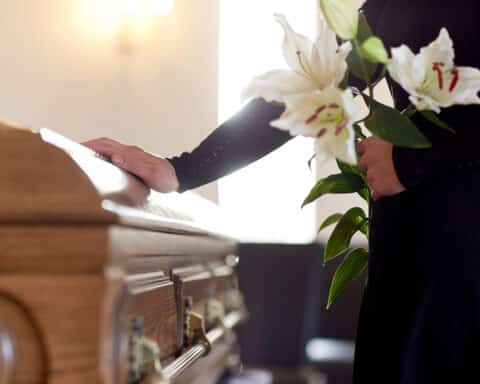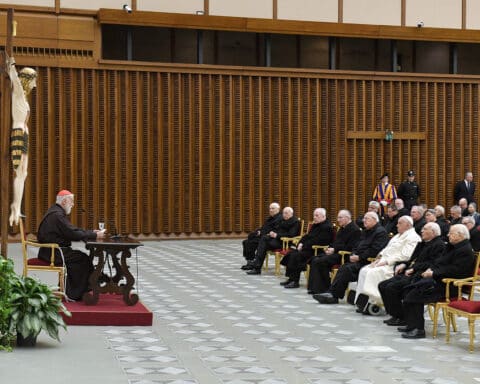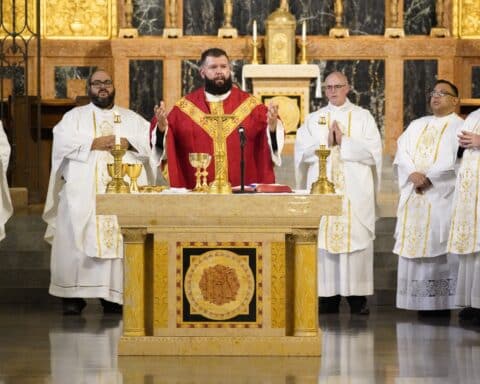Roads feature prominently in the Scriptures. In Jeremiah, the prophet speaks the Word of the Lord to Judah, still in exile in Babylon. The moment of their captivity is over, and it’s time to return home to Jerusalem.
But the faithful remnant isn’t coming alone. They’re bringing along everyone — the blind and the lame, mothers carrying children. The immense throng will walk “on a level road, without stumbling” (Jer 31:9).
The path home will be clear and without danger. It will be a road that is wide, a seven-lane highway in which all the nations can come streaming toward Jerusalem, entering into the reign of God.
In the Gospel of Mark, Jesus, the disciples and an ample crowd are walking along a road. They’re on the path toward the reign of God. The messiah, the great king, will take his seat on the throne of the cross. And Bartimaeus, one of the blind addressed by Jeremiah, sits along the road, crying out, “Jesus, son of David, have pity on me” (Mk 10:47).
| 30th Sunday in Ordinary Time Oct. 28, 2018 |
|---|
|
JER 31:7-9
PS 126:1-2, 2-3, 4-5, 6
HEB 5:1-6
MK 10:46-52
|
This is a poignant moment. In Mark 8, Jesus had given sight, on the second try, to an unnamed blind man. In the meantime, Jesus had preached the difficult words of the kingdom of God.
Take up your cross. Become a little child. Be a servant unto all. Live now as if the kingdom is at hand.
The disciples still don’t get it. They remain “blinded,” unable to see that the moment of hope is at hand.
And that’s why they rebuke Bartimaeus. The king doesn’t have time along the way to help you, Bartimaeus. He has some very important things on his schedule.
But Jesus hears Bartimaeus. He calls him. Bartimaeus is one of the few recipients of Christ’s healing who is given a name. Those early Christians must have known his name. They knew it because Bartimaeus was one of them.
And Bartimaeus cries out, “‘Master, I want to see'” (Mk 10:51). Along the way, as Jesus taught his disciples about the kingdom of God, no one cried out, “I want to see.”
The apostles and disciples wanted to know who would be first in line in the kingdom. They wanted to know who was most important. They couldn’t recognize who Jesus was, what it meant to be the disciple.
But Bartimaeus does. And he is healed. And he joins the ragtag, impossible band of followers of Jesus on the way.
He merges onto the highway of divine love, seeing far more than the surrounding landscape. He sees hope.
Years later, we too can follow Jesus on the way. But the road that we merge onto is Jesus himself: “I am the way and the truth and the life” (Jn 14:6).
What does it mean to walk on this road? To answer this question, we must understand who Jesus is. He is not the one who claims for himself power, prestige and privilege.
Like the high priests of old, he has a posture of radical openness. The one who names him high priest is the Father (Heb 5:6).
Walking on the road with Jesus means assuming this posture of radical openness. We too must receive all from the Father as gift beyond gift.
This is not always easy. Like Bartimaeus, we may cry out with pain at the death of a loved one, at a lost job, or a scandal that wounds us to our core.
But, still we cry out. Still, we walk on the road. Still, we’re on the way of hope.
Timothy P. O’Malley, Ph.D., is managing director of the McGrath Institute for Church Life.





